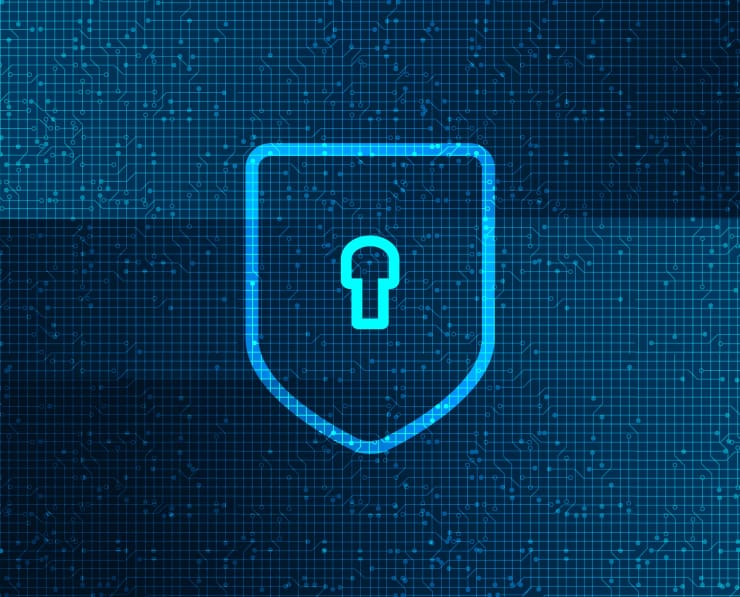Student Feedback
156-215.81.20: Check Point Certified Security Administrator - R81.20 (CCSA) Certification Video Training Course Outline
Trainer Introduction
Introduction
Checkpoint Firewall Architecture...
Checkpoint Installation on VMwar...
Lab Setup on Eve-ng
Checkpoint Intro & Lab BootS...
Overview Security Policy & L...
Section, Inline-layers and Polic...
Configuring Branch Office Gateway-2
Advanced Security Policy Configu...
Network Address Translation (NAT)
Checkpoint Maintenance, Processe...
Standalone Deployment
Vlan Deployment
Bridge Mode & Bond Interface...
Threat Prevention, IPS & Thr...
IPSec VPN on Cisco IOS
IPSEC Site-To-Site VPN
High Availability with Cluster XL
Upgrade Cluster XL
Trainer Introduction
156-215.81.20: Check Point Certified Security Administrator - R81.20 (CCSA) Certification Video Training Course Info
Comprehensive CCSA R81.20 Security Administration Certification Guide
CCSA 156-215.81.20 Test Preparation Guide with Practice Questions
What You Will Learn From This Course
• Master Check Point Security concepts and principles
• Configure and manage firewalls effectively using Check Point R81.20
• Implement and manage VPN Site-to-Site connections
• Deploy access control policies for network security
• Perform user authentication and identity management
• Monitor and troubleshoot security events in real-time
• Gain hands-on experience through practical labs and simulations
• Prepare confidently for the CSSA 156-215.81.20 certification exam
• Understand advanced security policies and threat prevention techniques
• Develop skills required for professional network security administration
Learning Objectives
The primary goal of this course is to provide a structured, practical, and comprehensive approach to Check Point security administration. By the end of the course, learners will be able to:
• Understand the core concepts of network security and firewall technologies
• Install and configure Check Point R81.20 security gateways
• Define and enforce access control policies effectively
• Configure Site-to-Site VPNs and ensure secure communication across networks
• Implement network segmentation and manage security zones
• Utilize Check Point monitoring and logging tools for threat detection
• Perform troubleshooting of firewall and VPN connectivity issues
• Apply identity awareness to control access based on user roles and groups
• Prepare efficiently for the CSSA certification exam with practice-based knowledge
Target Audience
This course is specifically designed for:
• Beginners who are starting their journey in network security and firewall administration
• IT professionals seeking career advancement in security operations or network management
• System administrators who want to gain expertise in Check Point firewall solutions
• Security analysts aiming to enhance skills in threat prevention and VPN configuration
• Professionals preparing for the Check Point Certified Security Administrator (CCSA) 156-215.81.20 exam
• Students looking for a structured and practical approach to learning Check Point security technologies
Requirements
To get the most out of this course, learners should have:
• Basic understanding of networking concepts such as TCP/IP, subnets, and routing
• Familiarity with operating systems including Windows and Linux for lab exercises
• Access to a computer capable of running virtual machines or Check Point lab environments
• Willingness to practice hands-on exercises to reinforce theoretical knowledge
• An interest in network security, firewalls, and secure network design
Prerequisites
This course is suitable for beginners, but having the following foundational knowledge can enhance learning:
• Understanding of basic networking protocols and communication models
• Basic knowledge of security concepts like encryption, authentication, and VPNs
• Familiarity with IT infrastructure and server-client environments
• Prior exposure to virtual lab environments or simulation software is helpful but not mandatory
Description
Check Point is a leading provider of network security solutions, widely adopted in enterprise environments for firewall protection, VPN implementation, and threat prevention. Understanding Check Point security administration is essential for IT professionals who aim to secure their network infrastructure effectively. The Check Point Certified Security Administrator (CCSA) certification validates an individual’s ability to configure, manage, and troubleshoot Check Point security gateways and policies.
The R81.20 version of Check Point software introduces enhanced features for firewall management, unified threat prevention, and VPN connectivity. This course is designed to guide learners step-by-step through all essential areas of Check Point administration. You will start with foundational concepts, move to practical configurations, and gradually progress to advanced security management practices.
Understanding Network Security and Firewalls
Network security is the practice of protecting the integrity, confidentiality, and availability of data and resources within a network. Firewalls are the cornerstone of network security, acting as barriers between trusted internal networks and untrusted external networks. Check Point firewalls provide robust protection by controlling traffic based on policies, monitoring suspicious activity, and preventing unauthorized access.
In this course, you will learn how to:
• Install and configure Check Point firewall software and appliances
• Define security policies that allow or block traffic based on rules
• Manage security zones and segment networks to reduce attack surfaces
• Implement logging and monitoring to detect security incidents
• Apply threat prevention techniques to safeguard networks from cyberattacks
Introduction to VPNs and Site-to-Site Connectivity
Virtual Private Networks (VPNs) enable secure communication between geographically separated networks over public infrastructure like the internet. Site-to-Site VPNs are critical for enterprises that require secure connections between branch offices, data centers, and remote networks.
Check Point provides comprehensive VPN solutions that include encryption, authentication, and tunneling protocols. During this course, learners will gain practical experience in:
• Configuring Site-to-Site VPNs to establish secure connections
• Managing encryption settings for data confidentiality
• Troubleshooting VPN connectivity issues
• Monitoring VPN activity and logs for security compliance
• Integrating VPNs with firewall policies to maintain network security
Configuring Access Control Policies
Access control policies define how traffic flows through the network, which users or devices are allowed access, and under what conditions. Proper policy configuration is essential for maintaining a secure network environment. Learners will gain practical skills in:
• Creating, modifying, and managing firewall rules
• Implementing network objects and groups for simplified policy management
• Using security layers to separate traffic types and protect critical resources
• Applying identity awareness policies to control access based on users or groups
• Testing and verifying policy effectiveness through simulated scenarios
Monitoring, Logging, and Troubleshooting
Monitoring and logging are essential components of network security. Check Point provides tools for real-time monitoring, event analysis, and security auditing. Understanding these tools allows administrators to identify threats, resolve issues quickly, and ensure network reliability.
In this course, you will learn to:
• Navigate Check Point monitoring dashboards for live traffic analysis
• Analyze log files to detect security breaches or misconfigurations
• Use troubleshooting tools to resolve connectivity and policy issues
• Implement automated alerts for suspicious activity
• Optimize network security by analyzing patterns and trends in traffic
Hands-On Labs and Practical Exercises
Theory alone is not enough for success in network security and the CSSA exam. This course emphasizes hands-on labs and practical exercises to ensure learners can apply their knowledge effectively. Exercises include:
• Firewall installation and configuration
• VPN setup and troubleshooting
• Policy creation and testing in realistic scenarios
• Monitoring and analyzing network traffic
• Simulated threat scenarios to test security policies
Course Modules / Sections
The Check Point Certified Security Administrator (CCSA) course is organized into carefully designed modules that ensure comprehensive coverage of all exam objectives and practical skills required for network security administration. Each module builds upon the previous one, gradually developing the learner’s expertise in firewall management, VPN configuration, policy implementation, and threat prevention.
The course is divided into the following key modules:
Module 1: Advanced Firewall Administration
This module focuses on advanced firewall features, configuration strategies, and security best practices. Learners will explore detailed firewall architecture, session handling, rule optimization, and policy enforcement strategies. Emphasis is placed on real-world scenarios to enhance practical understanding.
Module 2: Site-to-Site VPN Configuration and Management
Site-to-Site VPNs are critical for secure enterprise communication across distributed networks. This module provides a deep dive into VPN setup, encryption protocols, key management, and troubleshooting. Learners gain hands-on experience in configuring secure tunnels between remote sites while maintaining strict security policies.
Module 3: Access Control and Identity Awareness
Access control is essential for maintaining network security. This module teaches learners how to define, implement, and manage access control policies based on user identity, group membership, and network objects. Identity awareness techniques are also covered to enable dynamic access control based on real-time user authentication.
Module 4: Threat Prevention and Security Management
Threat prevention ensures networks are protected from malware, intrusion attempts, and other cyber threats. This module introduces threat prevention technologies within Check Point, including IPS (Intrusion Prevention System), antivirus, anti-bot, and application control. Learners practice integrating these protections into firewall policies for a robust security posture.
Module 5: Monitoring, Logging, and Reporting
Effective monitoring and logging allow administrators to detect, analyze, and respond to security incidents quickly. This module provides instruction on using Check Point SmartConsole and other monitoring tools to review logs, generate reports, and identify security anomalies. Real-world examples are included to illustrate incident response strategies.
Module 6: Troubleshooting and Optimization
Troubleshooting is an essential skill for any network administrator. This module equips learners with techniques for diagnosing connectivity issues, analyzing log files, identifying misconfigurations, and optimizing firewall performance. Emphasis is placed on systematic problem-solving and using Check Point diagnostic tools efficiently.
Module 7: Exam Preparation and Practice
The final module focuses on exam readiness. Learners will complete practice exams, timed quizzes, and scenario-based exercises to simulate the real CSSA 156-215.81.20 exam environment. Key topics are reviewed, and exam strategies are provided to increase confidence and accuracy.
Key Topics Covered
The course covers all major topics necessary to pass the Check Point Certified Security Administrator (CCSA) exam and gain real-world skills in network security administration. Key topics include:
Firewall Installation and Configuration
Learners begin with the installation of Check Point Security Gateways and SmartConsole. They will configure network interfaces, define security zones, and implement initial firewall rules. Advanced configuration practices, including rule ordering, object management, and session handling, are included to optimize firewall performance.
Policy Management and Rule Enforcement
Effective policy management is critical for secure networks. The course covers creating, modifying, and deleting policies, managing layered security rules, and testing policies in a controlled environment. Learners understand how to balance security requirements with network performance considerations.
VPN Technologies
The course provides in-depth knowledge of VPN technologies, including IPsec and SSL VPNs. Learners configure Site-to-Site VPNs, manage encryption keys, and monitor tunnel integrity. Practical labs reinforce the ability to establish secure communication between multiple sites and troubleshoot connectivity issues.
Identity Awareness and User Management
Identity awareness allows administrators to define policies based on user identity and roles. Topics include integrating directory services, managing user groups, and applying dynamic policies that change according to user activity. Learners gain the ability to implement fine-grained access control in enterprise networks.
Threat Prevention and Security Profiles
Learners explore various threat prevention techniques such as IPS, antivirus, anti-bot, and application control. The course explains how to apply security profiles to policies, monitor threat logs, and respond to detected threats. Advanced configuration practices are included to minimize false positives while maximizing network protection.
Monitoring, Logging, and Reporting
Monitoring and reporting are covered extensively to provide visibility into network activity. Learners configure real-time monitoring dashboards, analyze log files, generate detailed reports, and identify patterns indicating potential threats. The course emphasizes using monitoring tools to maintain compliance and proactive security management.
Troubleshooting and Optimization
Practical troubleshooting exercises allow learners to systematically identify and resolve issues with firewall rules, VPN tunnels, and connectivity. Optimization techniques, such as load balancing, rule consolidation, and traffic shaping, are included to enhance firewall performance and maintain security efficiency.
Exam-Oriented Preparation
The course includes exam-focused topics such as question types, time management, and practice exams. Scenario-based exercises help learners apply knowledge in a test-like environment, ensuring familiarity with exam structure and confidence during the actual CCSA exam.
Teaching Methodology
This course employs a blended teaching methodology combining theory, practice, and interactive learning. Each concept is introduced with a clear explanation, followed by demonstrations and hands-on labs that reinforce practical skills.
Hands-On Lab Exercises
Practical exercises are integrated throughout the course to simulate real-world network scenarios. Labs include configuring firewalls, implementing access control policies, establishing VPNs, applying threat prevention, and analyzing logs. This hands-on approach ensures learners gain experience applicable to both exams and professional environments.
Scenario-Based Learning
Scenario-based exercises present learners with realistic network challenges that require problem-solving and application of knowledge. This approach develops critical thinking and decision-making skills while reinforcing understanding of key concepts.
Video Lectures and Supplementary Resources
Comprehensive video lectures are provided to explain concepts in detail, with supplementary resources such as downloadable guides, configuration templates, and reference notes. These materials allow learners to review content at their own pace and reinforce learning.
Peer Interaction and Discussion
Learners are encouraged to engage with peers through discussion forums and collaborative exercises. Sharing experiences and solutions enhances understanding, provides multiple perspectives, and fosters a supportive learning environment.
Assessment & Evaluation
Assessment and evaluation in this course are designed to measure both theoretical knowledge and practical skills, ensuring learners are well-prepared for the CCSA exam and professional tasks.
Practice Exams
Multiple practice exams replicate the format and difficulty level of the CSSA 156-215.81.20 exam. Timed exams test knowledge under realistic conditions and help learners develop exam strategies, manage time efficiently, and identify areas needing improvement.
Hands-On Lab Assessments
Lab-based assessments evaluate learners’ ability to configure firewalls, implement policies, set up VPNs, and monitor network activity. Performance is assessed based on accuracy, adherence to best practices, and problem-solving approach.
Continuous Knowledge Checks
Quizzes and knowledge checks are incorporated after each module to reinforce key concepts. These assessments provide immediate feedback and help learners identify gaps in understanding before moving to advanced topics.
Scenario-Based Evaluations
Learners are presented with complex network scenarios that require applying multiple skills, such as integrating firewall rules with VPN configurations and threat prevention profiles. Evaluations assess the learner’s ability to implement comprehensive security solutions in realistic environments.
Certification Readiness Review
The course concludes with a comprehensive review of exam objectives, key topics, and high-yield areas. Learners practice full-length exams and receive performance analysis to ensure readiness for the CSSA 156-215.81.20 certification exam.
Benefits of the Course
Enrolling in the Check Point Certified Security Administrator (CCSA) course provides learners with a variety of benefits that extend beyond exam preparation. The course is designed to equip IT professionals with practical skills and knowledge to excel in network security roles while also preparing them for the CSSA 156-215.81.20 certification exam.
One of the primary benefits is practical expertise in Check Point firewall administration. Learners gain hands-on experience in configuring firewalls, defining access control policies, and managing network security effectively. This ensures that students are not only ready for the certification exam but are also prepared to handle real-world network security challenges.
The course also enhances VPN management skills, focusing on Site-to-Site and remote access VPN configurations. These skills are essential for maintaining secure communication between enterprise sites and ensuring the confidentiality and integrity of sensitive data across networks. Learners develop the ability to troubleshoot VPN issues, configure encryption protocols, and monitor traffic effectively.
Another significant benefit is the comprehensive understanding of threat prevention technologies. Learners become proficient in deploying intrusion prevention systems, antivirus, anti-bot, and application control features offered by Check Point. This knowledge allows network administrators to implement robust security measures and minimize the risk of cyber threats.
The course also emphasizes monitoring, logging, and reporting, which are crucial for proactive network security management. Learners gain experience in using Check Point SmartConsole and other monitoring tools to analyze logs, generate reports, and respond to security incidents in real-time. This capability enables IT teams to maintain high levels of security and compliance within their organizations.
Participants also benefit from structured exam preparation. The course includes realistic practice exams, scenario-based exercises, and timed quizzes that simulate the CSSA 156-215.81.20 exam environment. This focused preparation increases confidence, reduces exam anxiety, and maximizes the likelihood of passing on the first attempt.
The course offers personalized support from instructors and peers, providing learners with guidance, answers to queries, and clarification of complex topics. This interactive learning environment fosters collaboration, knowledge sharing, and skill reinforcement.
Finally, the course equips learners with career-ready skills in network security administration. Completing the program enhances professional credentials, increases employability, and opens opportunities in roles such as network security administrator, firewall specialist, and security operations analyst.
Course Duration
The Check Point Certified Security Administrator (CCSA) course is structured to provide in-depth coverage while accommodating various learning paces. The total duration of the course is designed to balance theory, practice, and hands-on exercises to ensure comprehensive understanding and skill development.
The course typically spans 6 to 8 weeks, depending on the learner’s schedule and prior experience. Learners can progress through modules at their own pace, dedicating additional time to complex topics such as VPN configuration, threat prevention, and advanced policy management.
Each module is designed to take approximately 5 to 8 hours, including video lectures, practical labs, and knowledge checks. Modules focusing on hands-on labs or scenario-based exercises may require additional time for learners to complete practice tasks and reinforce concepts effectively.
The course also includes revision and practice sessions for exam preparation. These sessions allow learners to review key topics, complete full-length practice exams, and address any knowledge gaps. This ensures a well-rounded understanding of all CSSA exam objectives and practical skills necessary for real-world applications.
The flexible duration allows learners to customize their study plan based on professional and personal commitments. Individuals can choose an accelerated pace to prepare for immediate certification or a more gradual approach to reinforce learning and skill mastery.
Tools & Resources Required
To gain the maximum benefit from the CCSA course, learners will need access to a variety of tools and resources that support hands-on practice, lab exercises, and exam preparation.
Software Tools
The course requires access to Check Point R81.20 Security Gateway and SmartConsole for firewall configuration, policy management, and monitoring exercises. These tools provide a realistic environment for learners to practice key concepts and prepare for real-world tasks.
Learners may also use virtualization software such as VMware Workstation, VMware Player, or VirtualBox to create lab environments. Virtual labs allow students to simulate network scenarios, configure firewalls and VPNs, and practice troubleshooting without affecting live networks.
Learning Resources
The course provides comprehensive learning materials, including video lectures, downloadable guides, configuration templates, and reference notes. These resources ensure learners have access to all necessary information and practical examples to reinforce understanding.
Additional resources include scenario-based exercises and practice exams that simulate the CSSA 156-215.81.20 exam environment. These materials help learners familiarize themselves with question formats, time management, and critical thinking required to pass the exam successfully.
Network and Hardware Requirements
A reliable internet connection is required to access online video lectures, lab simulations, and cloud-based practice environments. Learners should have a computer with sufficient processing power and memory to run virtualization software and lab setups effectively.
Optional hardware such as routers, switches, or additional network devices can enhance practical experience but are not mandatory. The course is designed to provide a complete hands-on experience using virtual labs, minimizing the need for physical equipment.
Community and Support
Access to an online community of learners and instructors is an essential resource for this course. Engaging with peers allows learners to share insights, discuss challenges, and receive guidance on complex topics. Personalized support from instructors ensures that learners can clarify doubts and receive feedback on practical exercises.
Study Schedule and Planning Tools
To maximize learning outcomes, learners are encouraged to utilize study planners, progress tracking tools, and revision checklists. These resources help organize study sessions, monitor progress, and ensure all modules and topics are covered effectively before attempting the exam.
Career Opportunities
Completing the Check Point Certified Security Administrator (CCSA) 156-215.81.20 course opens a wide range of career opportunities in network security and IT administration. Organizations across industries are increasingly investing in cybersecurity infrastructure, creating a high demand for skilled professionals who can manage firewalls, VPNs, and advanced threat prevention systems.
One of the primary career paths available is that of a Network Security Administrator. Professionals in this role are responsible for configuring and managing firewalls, implementing security policies, monitoring network traffic, and ensuring compliance with security standards. CCSA-certified individuals are well-equipped to take on these responsibilities due to their hands-on training and practical expertise in Check Point technologies.
Another in-demand role is the Firewall Engineer or Specialist. This position focuses on deploying and maintaining firewall systems, defining access control policies, and optimizing network security. The CCSA certification demonstrates a candidate’s ability to design, implement, and troubleshoot Check Point firewall solutions, making them highly attractive to employers seeking firewall experts.
Security Operations Center (SOC) Analysts are also ideal candidates for CCSA certification. SOC analysts monitor network activity, analyze security logs, detect threats, and respond to incidents in real time. The course’s emphasis on monitoring, logging, and reporting equips learners with the necessary skills to perform these tasks effectively, ensuring rapid threat detection and mitigation.
The course also prepares learners for positions such as VPN Administrator or Network Security Engineer, where the ability to configure and manage Site-to-Site and remote access VPNs is critical. Practical labs included in the course provide hands-on experience with VPN technologies, enabling professionals to maintain secure communication across multiple networks and remote locations.
In addition to technical roles, CCSA certification can enhance opportunities in IT management and consulting. Professionals with Check Point expertise can guide organizations in implementing robust security policies, optimizing network infrastructure, and mitigating cybersecurity risks. The certification validates both theoretical knowledge and practical proficiency, making certified individuals valuable assets in strategic IT and security decision-making.
Organizations across finance, healthcare, government, education, and enterprise sectors require skilled professionals to safeguard sensitive information. CCSA-certified individuals can also pursue opportunities as cybersecurity consultants, providing advisory services, risk assessments, and security policy recommendations to clients. Their ability to implement and maintain Check Point security solutions ensures that clients’ networks remain secure and compliant with industry standards.
Furthermore, the certification is a stepping stone for advanced Check Point credentials, such as the Check Point Certified Security Expert (CCSE). Professionals who complete the CCSA course can continue their education, advancing their careers into senior-level security positions and specialized roles in threat prevention, network architecture, and security auditing.
Overall, completing this course not only enhances technical capabilities but also boosts employability, provides career growth, and opens doors to diverse opportunities in the rapidly expanding field of cybersecurity.
Conclusion
The Check Point Certified Security Administrator (CCSA) 156-215.81.20 course provides a comprehensive learning experience designed to prepare IT professionals and beginners for both certification success and real-world network security challenges. Through a structured combination of theory, hands-on practice, and scenario-based exercises, learners develop a strong foundation in firewall administration, VPN configuration, access control, threat prevention, and monitoring.
Throughout the course, learners engage in practical labs and interactive exercises that simulate real-world scenarios. This hands-on approach ensures that participants can apply theoretical knowledge in professional settings, troubleshoot issues efficiently, and implement robust security measures. By mastering these skills, learners gain confidence in managing complex network environments while ensuring compliance with industry standards and security best practices.
The course’s comprehensive modules, including advanced firewall administration, VPN management, identity awareness, threat prevention, logging, monitoring, and troubleshooting, equip learners with the expertise required to handle modern network security challenges. Emphasis on exam preparation, practice tests, and scenario-based exercises ensures readiness for the CSSA 156-215.81.20 certification exam, increasing the likelihood of passing on the first attempt.
Enrolling in this course also provides access to expert instructors and a supportive learning community. Learners benefit from guidance, feedback, and knowledge-sharing opportunities, which reinforce understanding and help overcome challenges in practical exercises. The availability of optimized study materials, video lectures, lab templates, and practice exams enhances the learning experience and ensures alignment with the latest Check Point exam objectives.
The course’s benefits extend beyond certification. Professionals gain career-ready skills, including the ability to implement firewall policies, configure secure VPN connections, monitor network activity, and deploy threat prevention measures. These skills are highly valued in roles such as network security administrator, firewall engineer, SOC analyst, VPN administrator, cybersecurity consultant, and IT security manager. The practical experience gained through the course also positions learners for advanced certifications and senior-level security roles, enabling continuous career growth.
By completing this course, learners not only achieve a recognized certification but also acquire the confidence and proficiency needed to handle real-world network security challenges. The combination of structured learning, practical exercises, and expert guidance ensures a well-rounded skillset, preparing participants for both professional success and industry recognition.
Enroll Today
Take the first step toward advancing your career in network security by enrolling in the Check Point Certified Security Administrator (CCSA) 156-215.81.20 course today. This course is ideal for beginners, IT professionals, and security enthusiasts seeking to develop expertise in Check Point firewall management, VPN configuration, threat prevention, and network monitoring.
Enrollment provides access to a full suite of learning resources, including video lectures, hands-on labs, downloadable guides, scenario-based exercises, and practice exams. Learners can progress at their own pace, revisiting modules as needed to reinforce understanding and master practical skills.
Our expert instructors provide continuous support, guidance, and feedback throughout the course. By joining this program, learners gain access to a collaborative community of peers and professionals, creating opportunities for knowledge sharing, networking, and professional growth.
The course is designed to prepare participants thoroughly for the CSSA 156-215.81.20 certification exam, maximizing the likelihood of passing on the first attempt. Beyond exam readiness, the course equips learners with practical skills applicable in real-world network security environments, enhancing employability and career prospects in a high-demand industry.
Enroll today and embark on your journey to becoming a certified Check Point Security Administrator. Gain the expertise, confidence, and professional recognition needed to excel in cybersecurity, safeguard network environments, and advance your career in the growing field of IT security.









